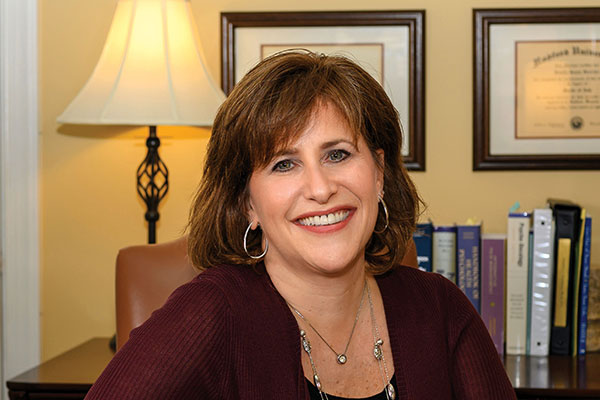Can Good Things Come from Cancer?
Exploring the Idea of Post-Traumatic Growth After Cancer
by Pamela J. Ginsberg, PhD
A cancer diagnosis can be one of the most devastating and frightening experiences a person ever has to face. Cancer can completely disrupt your life, sending you into a tailspin of fear, uncertainty, and loss of control. It will bring on a myriad of physical, emotional, and psychological challenges, which all must be addressed at a time when you feel vulnerable and destabilized.
However, though it is quite difficult, it is certainly possible to work through these challenges to not only restabilize your life but also grow from the experience. Psychologists call this concept post-traumatic growth, a concept introduced by Dr. Lawrence Calhoun and Dr. Richard Tedeschi. It refers to the process by which a person grows stronger and more contented as they overcome difficult or traumatic experiences. Post-traumatic growth after cancer happens when you take on the cancer experience with a sense of strength and open yourself up to the new perspectives and understanding that can come from going through such a difficult time.
We do not grow much when things are fine. We grow when things are difficult.
There are 5 key areas in which a person may experience post-traumatic growth:
1. Relating to others
How have your relationships improved, deepened, or become more intimate as a result of the cancer experience? Have you created any new, important relationships?
2. New possibilities
What new ideas or passions have opened up for you? Have you become more passionate about something? Have you become more sensitive or empathetic to the struggles of others?
3. Personal strength
How have you become stronger because of your experience? Have you surprised yourself in regard to how much more you can handle than you may have given yourself credit for in the past?
4. Spiritual changes
Do you feel a stronger connection to God or your higher power? Has your experience strengthened your faith or devotion to your spiritual or religious beliefs?
5. Deeper appreciation for life
Have you developed a deeper sense of gratitude and appreciation for what you have, your health, and your well-being? Have you vowed to do more with your life?
Think about how your life has changed in positive ways because of your cancer experience. And know that this incredibly challenging experience may just be what allowed for that growth to happen. We do not grow much when things are fine. We grow when things are difficult. The seismic experience of cancer challenges you to see things differently than you have seen them before.
Post-traumatic growth is more than just “being positive.” It requires you to fully engage in the struggle for the growth to happen. The difficulty is a necessary component. Despite all the advances in cancer prevention and treatment, cancer is still a life-threatening illness that is fraught with fear, anxiety, worry, and other complex emotions. However, instead of focusing on the difficulties, you can shift your focus to the positive changes that have occurred because of the difficulty.
After cancer, try to be both realistic and optimistic as you care for yourself. Follow your physician’s instructions for self-monitoring, lifestyle modification, healthy habits, and follow-up exams. But be optimistic about your future, your happiness, and your life satisfaction.
Cancer will be part of your life story, but certainly not the whole story. You have experienced something that is real and difficult. But you can choose to tell your story in a way that is empowering and optimistic. You can decide how you move through this experience, what it means to you, and how it will change you. Let this experience strengthen you, your relationships, your priorities, and your values. Learn to accept help. And have faith in yourself that you can live a full, meaningful, and beautiful life – even with a cancer diagnosis.
Dr. Pamela Ginsberg is a licensed psychologist in Doylestown, PA. She specializes in women’s health, psycho-oncology, and women’s issues. She is a member of the medical staff of Doylestown Hospital, serves on the board of directors for the Cancer Support Community of Greater Philadelphia, and is a speaker and consultant for several cancer organizations. You can connect with Dr. Ginsberg on her LinkedIn.
This article was published in Coping® with Cancer magazine, January/February 2020.


